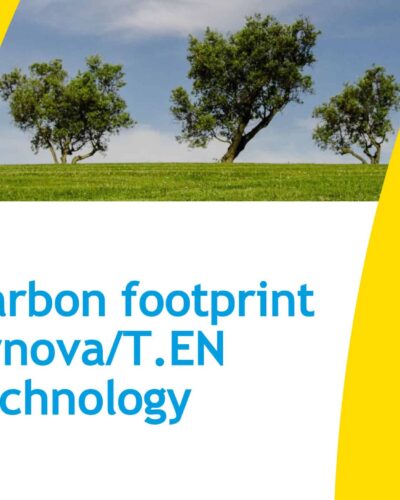Independent analysis reveals meaningful CO2 reduction from Synova and Technip Energies technology process
Recognized, independent research consultancy CE Delft has produced a report calculating the carbon footprint of the Synova/Technip Energies (T.EN) process. The report analyzed the conversion of mixed waste into high value chemicals (HVC), such as ethylene and propylene, which are the building blocks for new plastics. It concluded that the CO2 emission per kg HVC produced is reduced by 2.5 kg CO2e. This is calculated for a typical feedstock having 59% plastic content, with a naphtha steam cracker as the reference for HVC production and with waste otherwise going to incineration. Production of the feedstock from MSW as well as transport of waste is included in the analytical models.
The table below also shows what the CO2 footprint would be in alternative scenarios in which
(1) electricity is less carbon-intensive in the future,
(2) the feedstock is contaminated with more food, paper, and other organic material, and
(3) a landfill is the reference for waste instead of incineration.
In summary, the Synova/T.EN process to make new plastics from contaminated waste plastics has significant carbon footprint benefits. Read more about the CO2 benefits of the Synova/T.EN process and download the full CE Delft report below.


